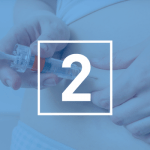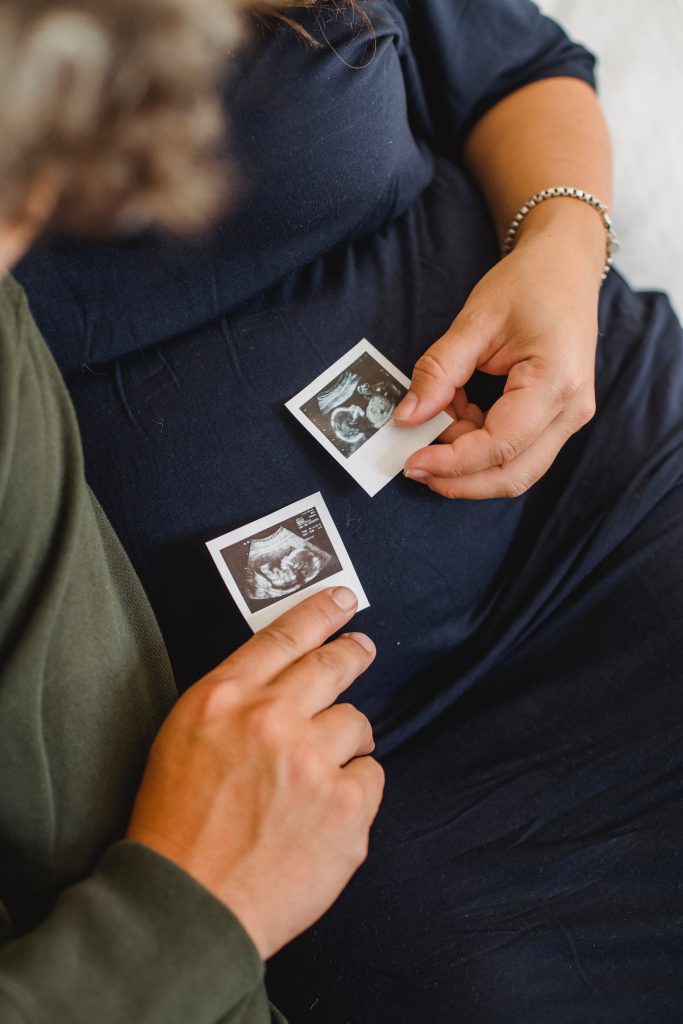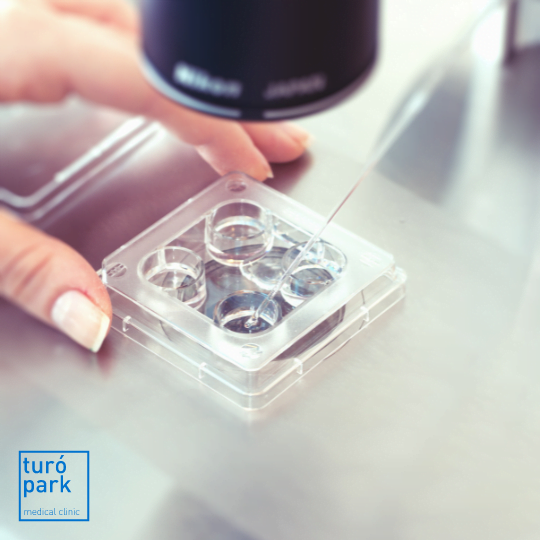Are you looking for a specialist in artificial insemination in Barcelona?
This treatment is not currently available at our centre.
If you're experiencing problems with infertility, you should know that there are fertility treatments that can help increase your chances of having a baby. Among them, artificial insemination accounts for nearly 40% of Attempts at Assisted Reproduction (ART) in the UK.
In our medical clinic in Barcelona, you will find gynecologists specializing in this technique. They provide personalized treatment and support throughout the procedure.
Intrauterine insemination (IUI): definition
Intrauterine insemination (IUI) is a simple procedure that puts sperm directly inside your uterus, which helps healthy sperm get closer to your egg.
The hoped-for outcome of intrauterine insemination is for the sperm to swim into the fallopian tube and fertilize a waiting egg, resulting in a normal pregnancy. Depending on the reasons for infertility, IUI can be coordinated with your normal cycle or with fertility medications.
When does artificial insemination need to be used?
Artificial insemination is prescribed in the following cases:
- Poor quality and insufficient number of sperm
- Blocked sperm passage through the cervix
- Difficulty ovulating
- Failure of ovulation stimulation
- Anomaly present in the cervix
What are the steps of the process?

Step 1: Previous tests necessary to artificial insemination
The recommended tests for performing artificial insemination are:
- Hormone test to examine the ovarian reserve. The Anti-Müllerian Hormone (AMH) value can be determined at any time during the cycle, and the FSH and Estradiol value on day 3 of the cycle.
- Semen analysis with motile sperm recovery (MSR) test to evaluate whether the partner’s sample is of sufficient quality to perform an insemination.
- Gynaecological ultrasound to rule out uterine and ovarian diseases. It is also used to evaluate the ovarian reserve by antral follicle count.
- Hysterosalpingography to evaluate tubal permeability. It consists of a contrast injection into the uterine neck while x-rays are being performed.
- Serologies to rule out the presence of transmissible infectious diseases.

Step 2: ovarian stimulation
IUI combined with controlled ovarian stimulation (COS) is widely used because of the higher pregnancy rates compared to IUI cycles without COS. Controlled ovarian stimulation is performed by administering hormones through daily subcutaneous injections from the first few days of the cycle. The stimulation protocol will be individually adjusted according to the woman’s ovarian reserve.

Step 3: Sperm sample preparation
The procedure involves preparing the sperm cells to concentrate the most motile sperms for injection into the uterus. The goal of this is to increase the number of motile sperm cells that reach the eggs and subsequently increase the chances of fertilization.
The sperm wash involves removing the extra fluid, eliminating the dead sperms, weak sperms, bacteria, debris, and prostaglandins that can cause uterine cramps, at the same time concentrating the most motile sperms in order to ensure that a larger number of motile sperm cells reach the uterus.

Step 4: Insemination
Insemination of sperm can be done via cervical (CI) or intra‐uterine (IUI) routes:
- Cervical Insemination (CI) delivers sperm directly to the cervix.
- Intrauterine Insemination (IUI) bypasses your cervix, depositing sperm directly into your uterus.
It is recommended to take a urine pregnancy test two weeks after insemination.
We care for Women.
Our specialists offer obstetrics and gynecologic care for women through all phases of life, from your pre-teen years to post-menopausal years.

How to Improve Artificial Insemination Success Rate?
The success of artificial insemination depends on more than the approach taken. Factors include:
- a woman’s age
- use of fertility medications
- underlying fertility concerns.
According to a research study published in the journal Human Reproduction, the pregnancy rate for ICI is 37.9 percent after six treatment cycles. The same study found a 40.5 percent success rate for IUI after six treatments.
To increase the artificial insemination success rate, we recommend you to:
- Continue a normal life
- Practice physical activities such as yoga and walking.
- Avoid alcohol
Stress and anxiety are two of the most common causes for the failure of artificial insemination. Therefore, it is very important for us to offer assistance to our patients through psychological interventions and emotional support.
Our psychological support methods focus on the following themes:
- Identify the problems causing infertility
- Overcome setbacks
- Overcome Communication Problems
- Provide all the tools available to overcome stress and anxiety
The goal is to improve the living conditions of patients during this complex period of their lives.
How do you know which treatment is best for you?
If you do not know which treatment is best suited to your situation, we invite you to make an appointment for an online consultation or a face-to-face consultation with our assisted reproduction specialist.

